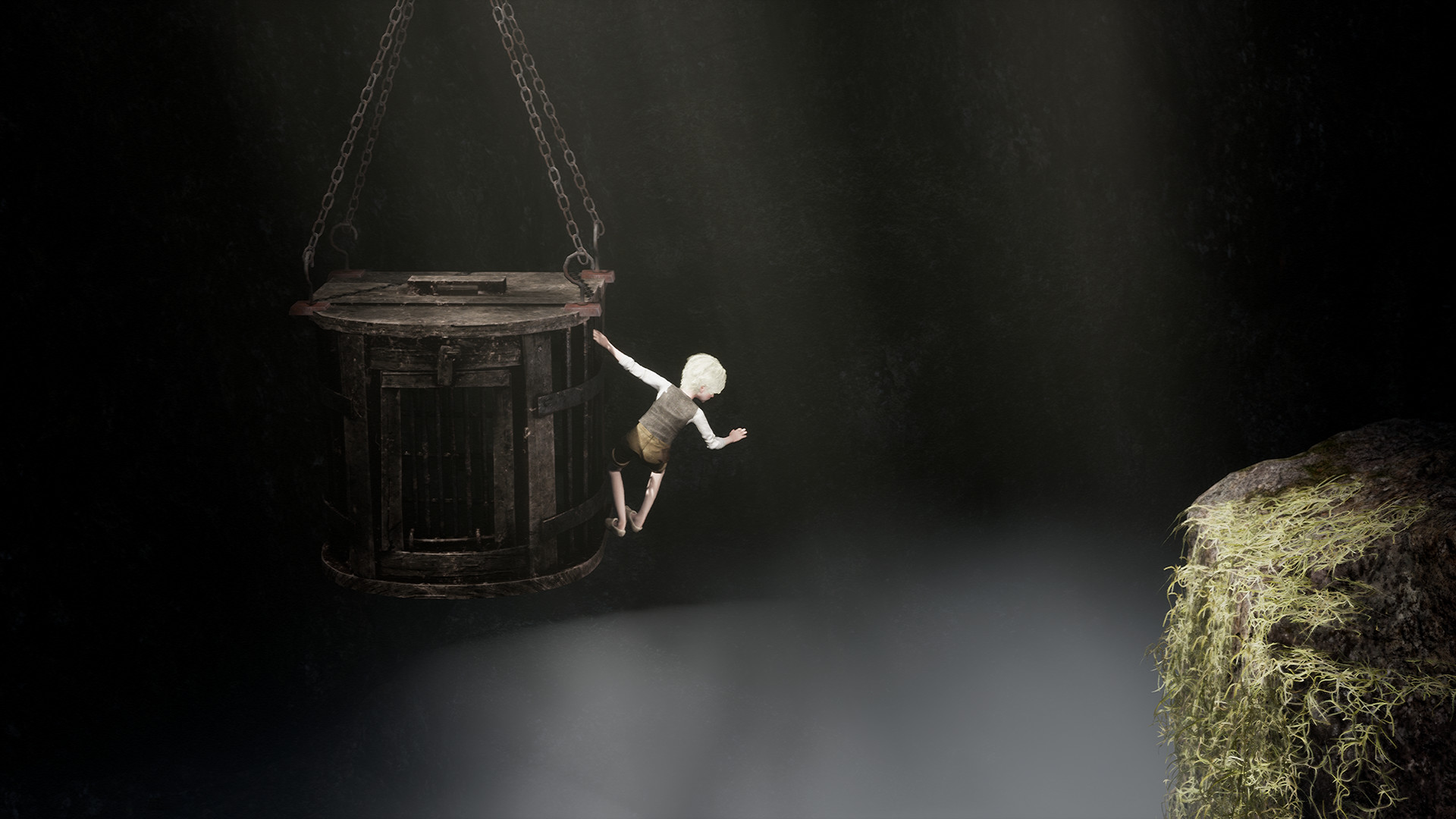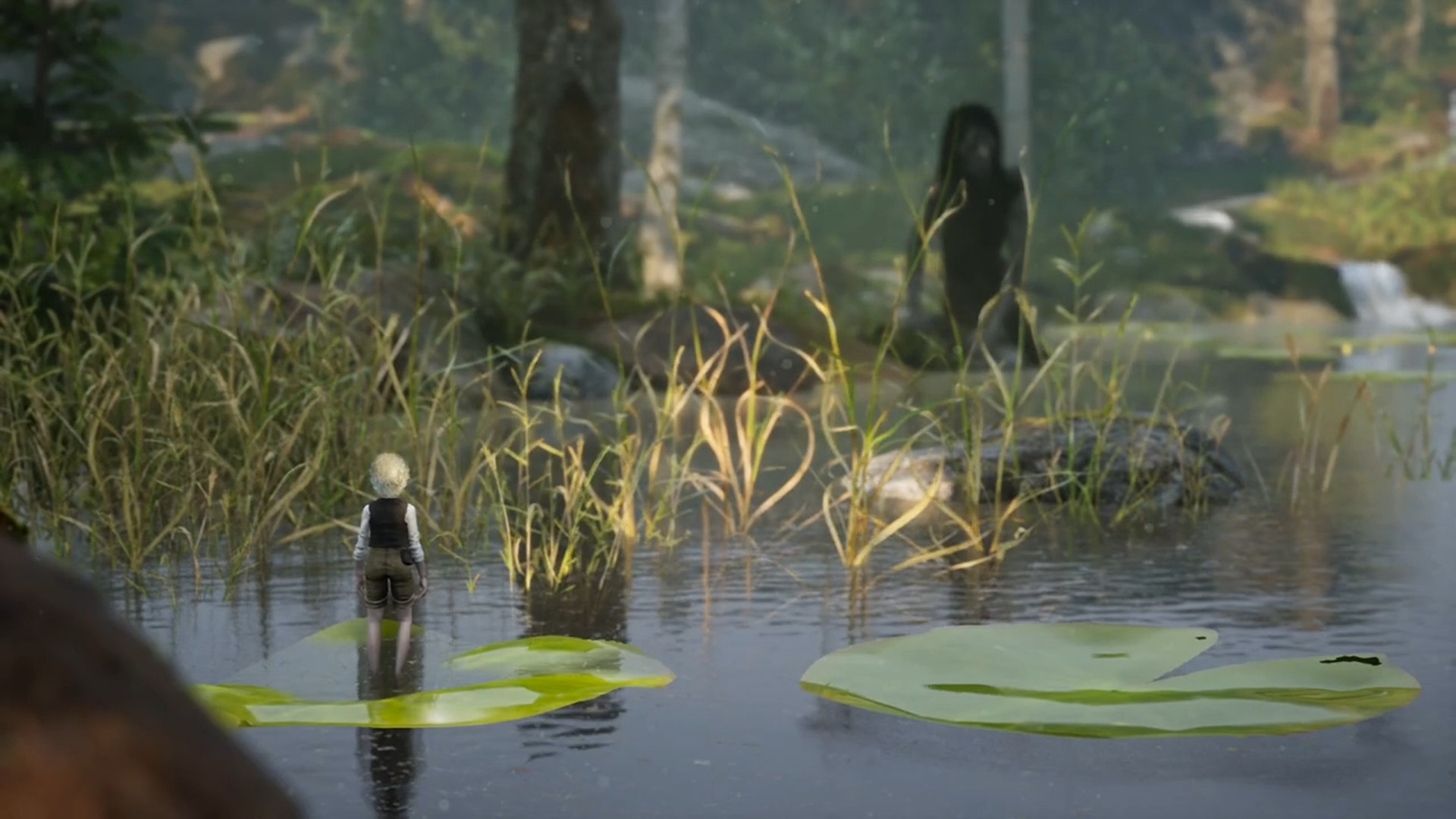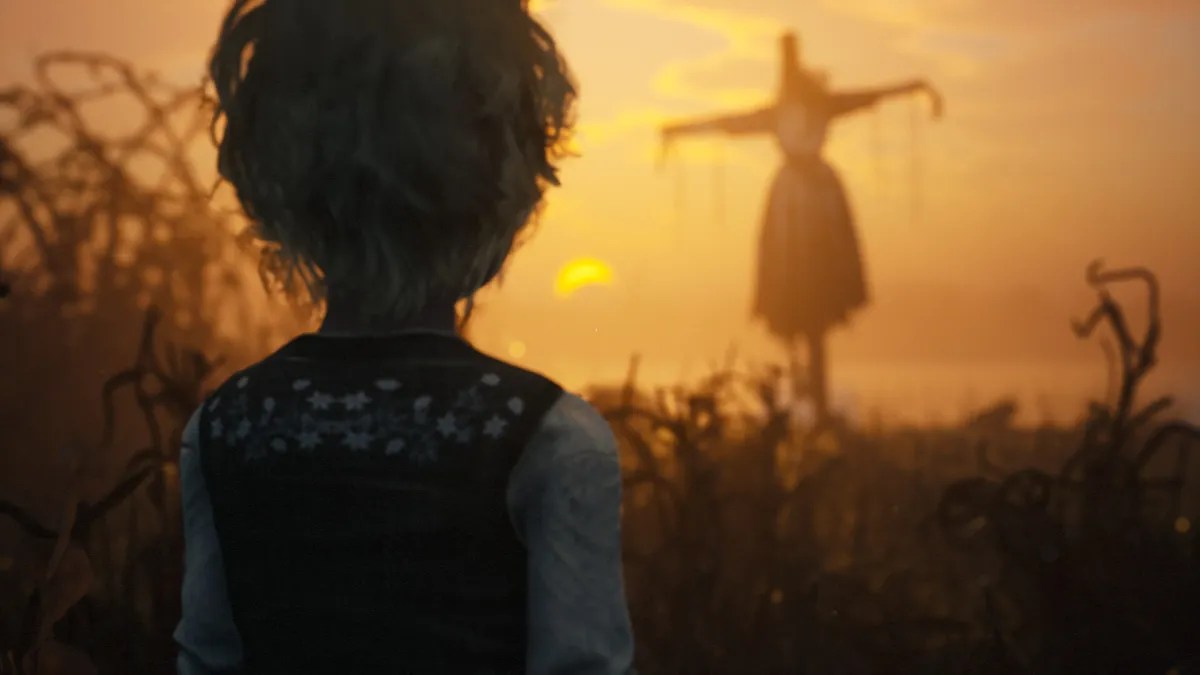This article contains spoilers for Bramble: The Mountain King.
When you picture a typical fairy tale’s cast of characters, there’s a good chance that you imagine an irreproachably virtuous protagonist and a fundamentally evil antagonist — a kindhearted princess and a malevolent queen, or an innocent child and a wicked witch, for example. At first glance, Bramble: The Mountain King seems to follow this formula to the letter: Olle (protagonist) is a boy who must rescue his sister before she is eaten by Nils, the Mountain King (antagonist). However, as the narrative progresses, it becomes apparent that Dimfrost Studio has taken great care to forgo the rigid moral dichotomy that’s often present in classic and modernized fairy tales alike.
Although the lines are never blurred to the extent that we’re left questioning anyone’s general alignment (Did I mention that the Mountain King eats children?), the game makes a point of reminding us that no one is purely good or inherently bad — heroes have the potential to succumb to their darker inclinations just as villains have the capacity to resist them. By allowing Olle to occasionally tread a darker path, the story conveyed in Bramble: The Mountain King achieves a level of authenticity that makes it feel fresh and timeless all at once.
The first means by which Bramble begins to skew some common fairy tale tropes is in casting Olle as a hero — centering his development on his courageous quest to save his sister — without shying away from the fact that he is utterly weak and helpless in several situations. After all, he is a child, and there’s not much resistance a child can muster against creatures that could probably crush him in the palms of their hands. Thus, there is nothing Olle can do but watch in horror as Lillemor, his older sister, is kidnapped by a troll at the beginning of the game.

It’s also worth noting that, although Lillemor is clearly filling the role of “damsel in distress,” she’s also characterized as braver, stronger, and more capable than Olle in just about every way. Up to this point, Lillemor has been Olle’s protector, and the forced reversal of their roles highlights just how out of his depth Olle is. While this weakness is not a moral flaw, it begets moments of “darkness” in the sense that Olle is simply unable to prevent tragedies that a traditional hero very likely would — for example, he is powerless to save an infant from being drowned in Kärrhäxan’s swamp.
A more sinister repercussion of Olle’s weakness is that Bramble provides at least one opportunity for him to circumvent danger at the expense of someone even more vulnerable than he is. While crossing a muddy stream inhabited by some unseen menace, Olle can push a caged gnome into the water, drawing the monster’s attention and allowing Olle to escape more easily. This unlocks an achievement called “Bait,” which implies that 1) sacrificing the gnome is encouraged, at least to some degree, and 2) the developers wanted to point out Olle’s potential for distinctly unethical acts.
In many fairy tales starring young characters, such as “Little Red Riding Hood” (Charles Perrault, 1697), “Rapunzel” (Jacob and Wilhelm Grimm, 1812), and “The Little Mermaid” (Hans Christian Andersen, 1837), the protagonists are portrayed as making mistakes because they simply don’t know any better — they are naïve or foolishly idealistic, but their intentions are pure. Olle, however, would undoubtedly recognize sacrificing the gnome as immoral, and there’s something oddly refreshing about Bramble: The Mountain King acknowledging that even “good” people sometimes make selfish choices in dire circumstances.

Olle’s most dramatic descent into darkness follows his battle with Skogsrå, a shapeshifting forest spirit. Once Olle gains the upper hand, rendering Skogsrå all but defenseless, he unleashes a startling display of violence, stabbing her repeatedly until he is covered in her blood. Although it seems Olle had little choice in the matter of slaying Skogsrå — she kills him if he hesitates for even an instant — he clearly feels immense remorse for the brutal manner in which he conducts himself here.
Toward the end of his journey, in what might have been a triumphant moment, Olle is instead haunted by his previous actions: “As he reached the summit, Olle felt regret. Regret that he could not stop his sister from being taken. Regret that he could not stop the woman from drowning her child. Regret that he had killed the shapeshifter in the forest. Now the mountain stood before him, and he wished he could ask their forgiveness.” Observing how Olle has changed over the course of Bramble: The Mountain King is bittersweet — although it might be upsetting to watch a child attempting to cope with the harsh world he’s found himself in, it’s also gratifying to see the final few acts of this story afforded more nuance than the all-too-common “happily ever after.”
Some of Bramble’s antagonists are revealed to have tragic backstories that encourage players to sympathize with them despite their monstrous deeds. For example, Näcken, the water-dwelling creature who lures people to drown with his enchanted violin music, was once an ordinary man who was bullied and beaten to the point of losing his humanity. Nils, the Mountain King, also has a harrowing past, which is shown to the player via a storybook Olle discovers among Lyktgubben’s records.
Rather than giving the impression of attempting to mitigate just how depraved these antagonists have become, the game’s hearkening to times when they might have been seen as “good” people serves the same purpose as allowing Olle to stumble into “the dark side” every so often — it is a reminder that the capacity for good and evil exists in all of us. Not every fairy tale is willing to convey this simple truth, and Bramble’s commitment to doing so is one of its most poignant aspects.
Bramble: The Mountain King is out now on all major platforms.






Published: Apr 30, 2023 11:00 am